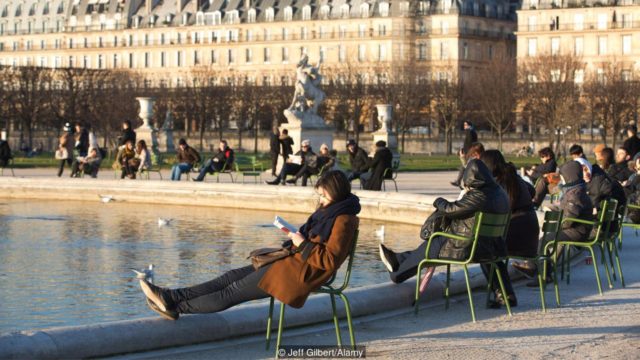Folium: Why the French Don’t Show Excitement via BBC Travel
…
Connect:
…
Sometimes, when you don’t feel like you belong, the most painful of realizations can shake you. You might understand this if you have ever moved to another city, state, or country. You may have even felt this moving from middle school to high school. Those feelings stem from realizing the way in which you express yourself in your little bubble is not the same as in the new environment.
…

Personal expressions are different among countries, states, cities,
or even different cultural groups sitting right next to each other!
…
Emily Monaco explains these types of feelings. She decided, after visiting France for five years as a teen, to make the permanent move from the United States to France. She did not foresee the painstaking process of assimilating to the new culture. She had visited so many times and she felt comfortable with the transition. She soon realized that feeling, the feeling as though you aren’t one of them, was all too real. But Emily thought she at least had a good idea of how the people were and how to culturally assimilate with ease. She says, “of course, I was wrong. There’s nothing like cultural nuance to remind you who you are at your core.”
…
“Not only is ‘Je suis excité’ not the appropriate way to convey excitement in French, but there seems to be no real way to express it at all.” – Emily Monaco via BBCTravel
…
Emily’s suspicion didn’t come until a wise French teacher mentioned his theory about the differences between Americans and The French. He said, “You Americans,” “live in the faire [to do]. The avoir [to have]. In France, we live in the être [to be].” American culture lends to the ideas of Eyal Winter Ph.D. and his explanation of why it is difficult for us (Americans) to live for the moment. He says, “Our mind views time as a continuous and linear process. Because it is continuous, any millisecond before the present moment is already past and any millisecond later is already a future.” Americans are hard wired to keep moving forward. Moving, going, and flowing to the next project, meeting, or next job. With this idea in mind, it’s easy to understand why when Americans make small talk it’s not just about where they had recently been on holiday like the French do. According to a study done in Western Illinois University, it was found that when speaking with Americans, “People in the US are curious. They will ask you a lot of questions. Some of their questions may appear ridiculous, uninformed and elementary, but try to be patient in answering them.”
…
French customs aren’t necessarily rude… Just different!
…
Americans are caught up with their personal agendas, making it their purpose to fulfill rather than just letting life “be.” Emily then says, “It made perfect sense. I thought back to my life in New York, where every moment was devoted to checking tasks off a perpetual to-do list… In France, however, people were perfectly contented to just be.” Emily felt this disconnect as she tried to blend in with the French people, she appeared “too happy” when speaking in French. Julie Barlow, Canadian co-author of “The Story of French and The Bonjour Effect”, said, “The French don’t appreciate in conversation a kind of positive, sunny exuberance that’s really typical of Americans.”
…

Might as well learn other things that you shouldn’t say!
…
Authenticity has been important to the French since the Revolution, according to Brice Couturier at France Culture. Something the French have maintained to this day, is the truthful expressions of their emotions to avoid appearing inauthentic. Emily’s French husband even mentioned this in his idea of Americans: “I used to judge Americans because I thought they were always too ecstatic, always having disproportionate reactions.” Emily has now lived in France for 13 years and concludes her cultural assimilation experience with this thought, “…when one is living in the moment, there’s no need to think about – or get excited about – what’s next.”
Are you living in the moment (être) or looking to the future (faire)?
Julie Thatcher
LEAF Contributor
…

